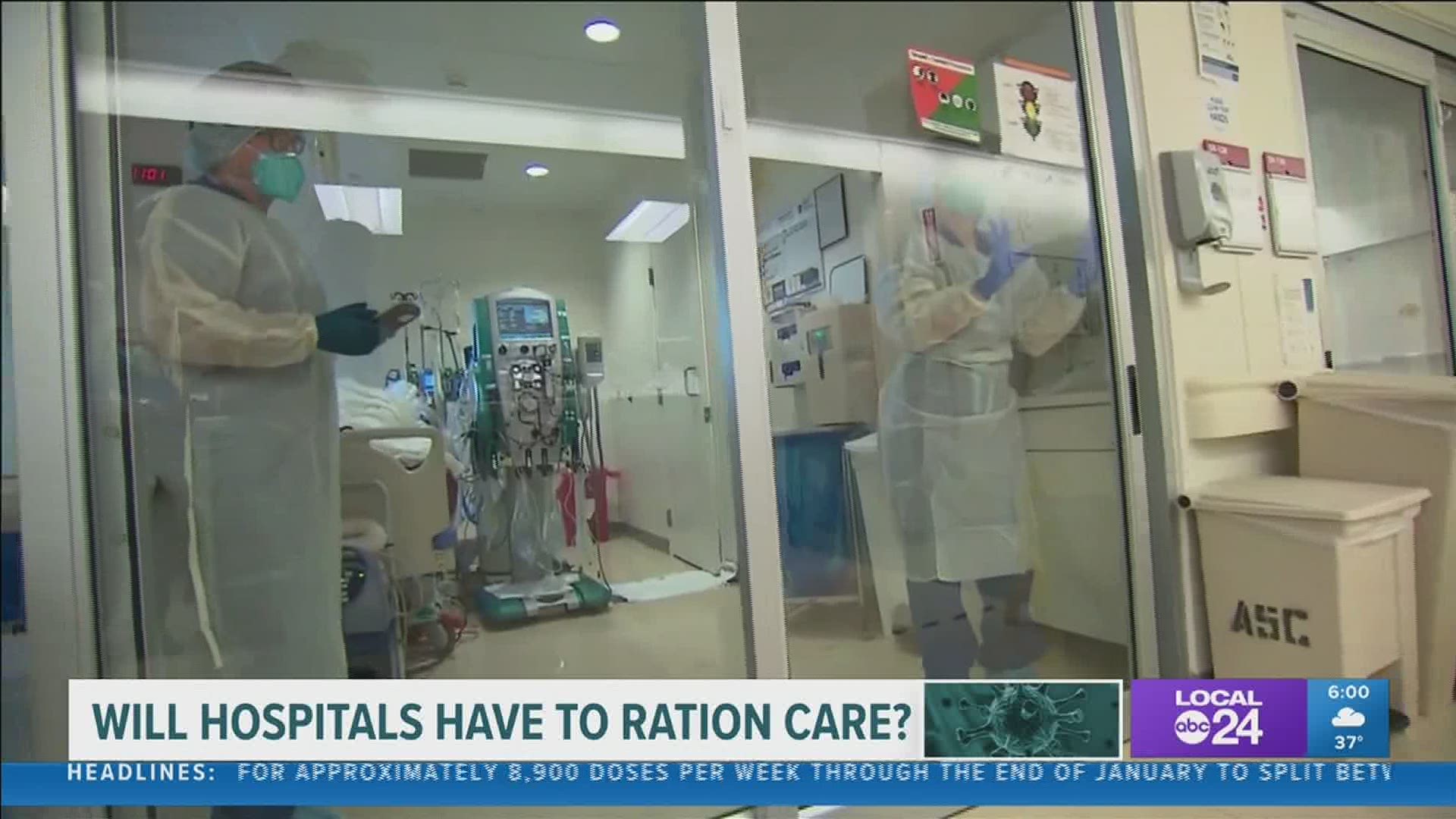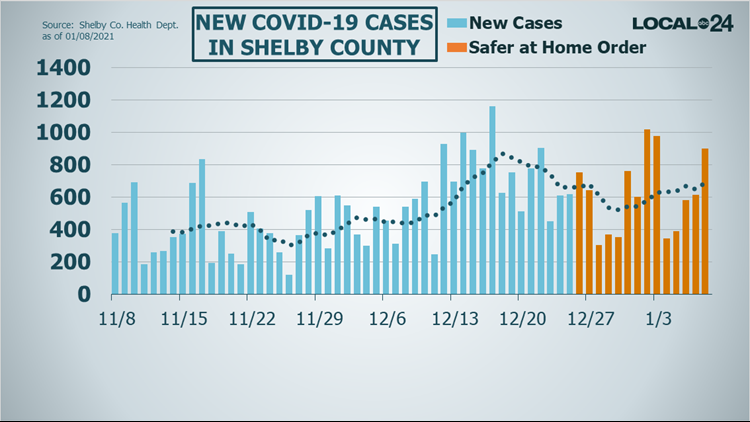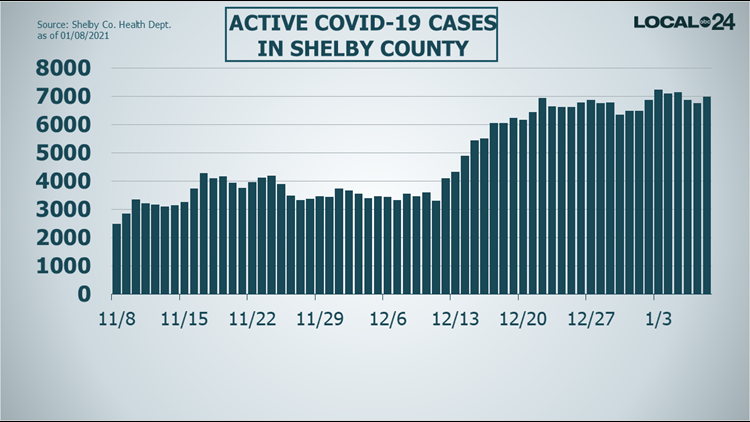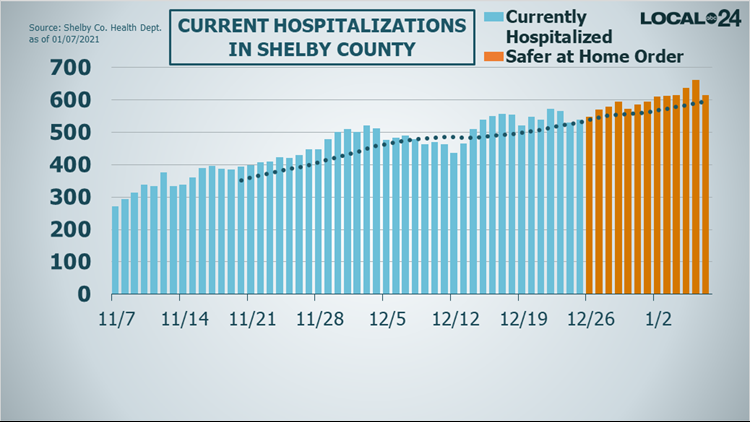MEMPHIS, Tenn. — Overwhelmed hospitals in California are on the verge of rationing care and medical supplies.
According to reports, a team of "triage officers" in Los Angeles may end up deciding which patients could benefit from continued care, and those that are beyond saving.
The COVID-19 crisis is so bad there, there are shortages of oxygen, and emergency responders have been told not to transport patients to the hospital if they can't be revived in the field.
Could that situation happen here in the Mid-South? And what would happen if resources were limited?
By now you have probably seen the images. California hospitals, overrun with patients, first responders stretched thin. Thankfully, here in the Mid-South, our COVID-19 crisis has not reached that level.
"There certainly could a time where will be in a very difficult situation - not different from what we saw in New York months ago and what's happening in California," said Dr. Manoj Jain, an Infectious Disease Specialist.
Jain is a member of the Shelby County COVID-19 Joint task force. Jain said for us to be in a California-type situation, our cases would have to sharply rise. Daily, Shelby County is hovering above 90% capacity. To help keep hospitals from running out of space, Dr. Jain said some changes have been made
"If there is very low probably of hospitalization or ICU care benefitting an individual, then there is no point in admitting them to the ICU - no point in admitting them to the hospital. And lots of times they are being cared for in the nursing home in the best way possible," said Jain.
Jain said medical providers are having end of life conversations with patients and families sooner than they did pre-pandemic.
"We are much more proactive in those conversations than we were before, because we know that hospital beds and ICU beds are limited," said Jain.
A look at COVID-19 numbers in Memphis and Shelby County for January 8th
If Tennessee's hospital situation ever got bad enough care would have to be rationed, the State of Tennessee "Guidance for Ethical Allocation Scarce Resources" document lays out what happens in a public health emergency.
According to the guidance, depending on how bad the pandemic is, levels of care could be altered. Earlier this year it was updated to make sure if the state does have to ration care, people couldn't be discriminated against because of their age or disability.
"If we get into a critical situation, we do have a document which provides guidance - general guidance - and then the hospitals and the doctors try to figure out how to implement this document in the situation they are in," said Jain.
RELATED: Reports: Los Angeles ambulance crews told not to transport patients with little survival chance
"I'm certainly very hopeful we don't see in Tennessee the kinds of things we are seeing in other parts of the USA - like running short on oxygen supplies or the need to bring in the army core to get more oxygen to patients. That would certainly be a tragedy anywhere. I'm hoping we can avoid those situations where physical resources become constrained," said Dr. David Aronoff with Vanderbilt University Medical Center.
"Our real hope is that the number of cases don't go up that high," said Jain.
Jain believes if we can hold the number of hospitalizations we have and COVID-19 cases start declining, with the help of the vaccine, we will be okay.







